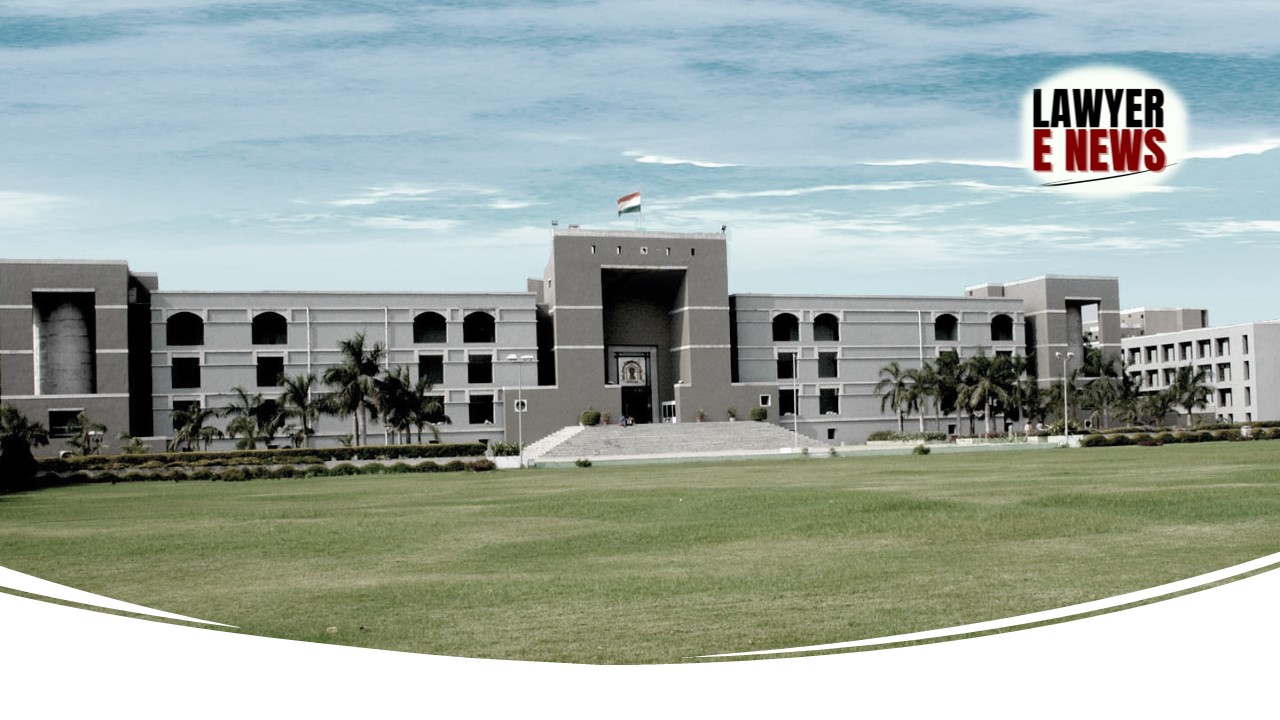-
by Admin
15 February 2026 5:35 AM



Gujarat High Court granted relief to a wife seeking to be appointed as the legal guardian of her comatose husband. Justice Maulik J. Shelat invoked the parens patriae jurisdiction under Article 226 of the Constitution to safeguard the interests of the incapacitated individual. The court also emphasized the need for legislative action to address guardianship in such cases, where specific statutory provisions are absent.
The petitioner, Shobhnaben, approached the High Court under Article 226 of the Constitution of India, seeking to be declared as the guardian of her husband, Harjivan Manjibhai Hadiya, who has been in a persistent vegetative state following a cerebrovascular stroke in 2022. She sought authority to manage his financial accounts and properties to meet mounting medical expenses and sustain their family, including their two minor children. The petitioner submitted medical evidence confirming her husband's condition as "completely physically invalid" and highlighted the absence of alternative statutory remedies.
The respondent, represented by the Assistant Government Pleader, did not contest the medical diagnosis and deferred to the court for appropriate orders to protect the patient's best interests.
Legal Issue: Absence of Legislative Framework for Guardianship of Comatose Individuals
The central legal issue revolved around the absence of any legislative framework in India for appointing guardians for persons in a comatose or vegetative state. While statutes such as the Guardian and Wards Act, 1890, and the Mental Healthcare Act, 2017, address guardianship for minors and persons with mental illnesses, they do not cover individuals in a persistent vegetative state. This legislative gap compelled the petitioner to approach the High Court for relief.
The court acknowledged the growing number of cases involving individuals in comatose conditions due to modern lifestyles and unforeseen medical emergencies. It relied on precedents, including:
Dipaben W/o Dhaval Laxmikant Bhatt v. State of Gujarat (2022), where a wife was appointed as guardian under similar circumstances.
Shobha Gopalakrishnan v. State of Kerala (2020) and Uma Mittal v. Union of India (2020), where the Kerala and Allahabad High Courts invoked parens patriae jurisdiction to address the lack of statutory provisions for guardianship of comatose patients.
The court observed that the doctrine of parens patriae obligates constitutional courts to step in as a protector for individuals who are unable to care for themselves and have no statutory remedy. This principle empowers the state to act as a guardian for those who cannot act on their own behalf, such as minors, mentally ill individuals, or persons in a vegetative state.
The High Court allowed the petition and appointed Shobhnaben as the guardian of her husband. The court authorized her to manage her husband’s movable and immovable properties, operate his bank accounts, and utilize funds for his medical care and family welfare. To ensure accountability, the court imposed stringent conditions, including:
Periodic Reporting: The petitioner must file a report every three months with the Registrar of the Gujarat High Court, detailing transactions related to her husband's assets and the utilization of funds.
Oversight by Public Officers: A designated social welfare officer must visit the comatose patient weekly to monitor the guardian’s actions and report any misuse or neglect to the court.
Restrictions on Property Transactions: The guardian must seek the court's permission for significant actions, such as selling property or relocating the patient to another state or country.
Transparency and Accountability: The petitioner must adhere to standards akin to those outlined under Sections 15 and 16 of the National Trust Act, 1999, which governs guardianship for persons with disabilities.
The court clarified that the order would remain effective until the patient recovered or his condition otherwise changed.
In a significant observation, the court emphasized the urgent need for legislative intervention to address the guardianship of adults in comatose states. Citing the directive principles of state policy under Part IV of the Constitution, the court urged the state to frame legislation or policies enabling the appointment of guardians for incapacitated individuals. Such a framework would provide clarity and uniformity, preventing the need for ad hoc judicial interventions.
This landmark judgment highlights the judiciary's role in filling legislative gaps by invoking constitutional principles to protect vulnerable individuals. While granting the petitioner’s request, the court also set detailed safeguards to ensure the guardian acts solely in the patient’s best interests. By emphasizing the doctrine of parens patriae and urging legislative reforms, the Gujarat High Court has paved the way for more comprehensive legal mechanisms to address the plight of individuals in persistent vegetative states.
Date of Decision: November 7, 2024
